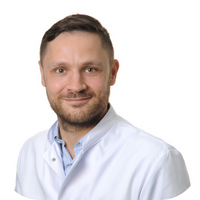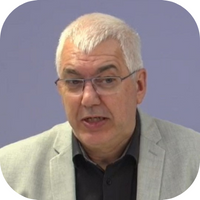
About this module
This module will provide a comprehensive and detailed understanding of molecular pathology in the context of neoplastic diseases.The focus will be on the role of molecular testing for tumor classification, prognostication and therapeutic prediction. Application of molecular pathology to routine as well as emerging clinical diagnostic practice for common types of cancer will be addressed.
A certified molecular pathologist can recommend the appropriate molecular (or non-molecular) markers and can evaluate, interpret and report molecular diagnostic cases following international and local guidelines, and will be able to use a common language on molecular pathology
Learning outcomes
- Understand the importance of sample selection for successful and meaningful molecular profiling
- Collaborate effectively with other diagnostic specialists and stakeholders with responsibilities in molecular pathology.
- In a case of discussion with the clinical team, decide on the proper diagnostic workup.
- Integrate molecular pathology in present-day clinical practice in the context of routine diagnostic pathology & in the setting of a molecular tumour board/precision oncology program
- Demonstrate competency in evaluating, interpreting and reporting of molecular and pathology results in clinical context.
- Acknowledge the therapeutic relevance of molecular alterations to support treatment-decision-making for currently available drugs for a range of cancers.
- Present and critically discuss molecular and pathological results in an oncology multidisciplinary team meeting.
- Be aware of (predictive/prognostic) genomic alterations found in tumour tissue that could have implications on the necessity of further genetic counselling.
- Speak a common language on molecular pathology among European care providers
Module Coordinators

- Dr. Arjan Diepstra
-
Arjan Diepstra, MD PhD is Associate Professor of Hematopathology and program leader of the Stem cells, Ageing, Leukemia and Lymphoma research group of the University Medical Center Groningen in the Netherlands. He combined his postgraduate training with a PhD study on classic Hodgkin lymphoma and did a Dutch Cancer Society research fellowship in the lab of prof. Alan Rickinson at the University of Birmingham in the United Kingdom. In 2007 he became a staff member at the department of Pathology and Medical Biology of the UMC Groningen as a consulting hematopathologist serving a population of 4.5 million inhabitants and with a central role in coordinating molecular diagnostics. He is an active committee member of the international Interlymph consortium, the European EORTC lymphoma group and the Hemato oncology foundation for adults in the Netherlands (HOVON) and is responsible for several translational research projects in clinical trials for lymphoma patients. His published work includes over 150 original articles, contributions to two WHO classifications and e-learning modules on biology of lymphomas (https://www.lymphomaresearchgroningen.nl/e-learning).
e-mail: a.diepstra@umcg.nl

- Dr. Benedikt Westphalen
-
Dr Westphalen joined ESMO in 2017 and was a participant in the “ESMO Leaders Generation Programme” in 2018. He joined the ESMO Translational Research and Precision Medicine Working Group as well as the ESMO GI faculty Group in 2019. He currently serves as an officer for the German Cancer Aid (Deutsche Krebshilfe) and the Arbeitsgemeinschaft Internistische Onkologie (AIO). In 2022, Dr. Westphalen was elected to join the EU Commission Mission expert group: Mission Board for Cancer

















